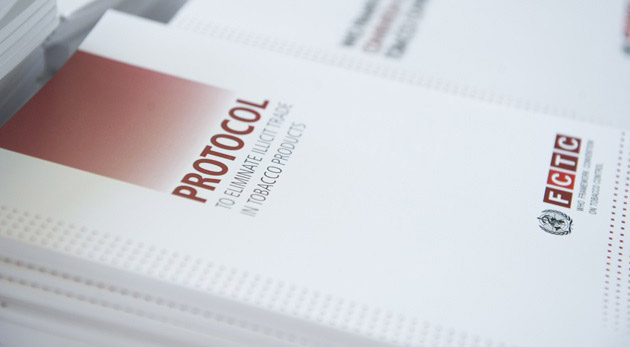
Context
In 2008, Iraq ratified the WHO Framework Convention on Tobacco Control (FCTC) as a measure to address the widespread use of tobacco within its population. Subsequently, in 2012, the government introduced a tobacco control act aimed at reducing tobacco consumption. However, despite these efforts, there was a lack of effective control over imported tobacco products, resulting in rampant smuggling and easy accessibility of cheap tobacco products, particularly among young people. Consequently, there arose a pressing need for a political decision to enhance international cooperation in tackling this issue.
Initiative
To combat illicit tobacco trade, Iraq actively participated in the early negotiations concerning the Protocol to Eliminate Illicit Trade in Tobacco Products. In order to raise awareness among decision-makers about the advantages of ratifying this Protocol, the WHO Tobacco Free Initiative within the Regional Office for the Eastern Mediterranean organized a workshop exclusively for leaders within Iraq's Ministry of Health and Parliament. This workshop held great significance as it aimed to inform policymakers and encourage the ratification of the Protocol, particularly emphasizing its effectiveness in combatting tobacco smuggling. Consequently, Iraq became the second country in the Region to ratify the Protocol in 2015. Subsequently, Iraq initiated a series of communications with other countries within the Region to urge them to ratify the Protocol and foster international cooperation in eradicating tobacco smuggling. As the initial step towards implementing the Protocol, Iraq introduced a traceability component by amending the standard specifications for tobacco products. This amendment entailed the inclusion of labelling on these products, enabling the tracking of their country of origin and country of sale.
Impact
The envisioned outcome of this endeavour is a reduction in illicit tobacco trade facilitated by international collaboration between countries. By employing traceability measures, the initiative aims to identify and acknowledge instances of illegal tobacco product trade. Furthermore, the implementation of increased taxation on tobacco products will contribute to elevated prices, consequently leading to a decrease in the overall prevalence of tobacco use.
Next steps
In close collaboration with other countries that have ratified the Protocol, the Ministry’s objective is to enhance and strengthen its strategy by engaging in the exchange of security information and sharing experiences. The Ministry plans to organize regional meetings and workshops, focusing on capacity building for personnel responsible for preventing the illicit trade of tobacco products within the Region. These efforts are aimed at fostering effective measures and strengthening the collective response to combatting illicit tobacco trade.
References
MPOWER measures to reduce demand for tobacco
Protocol to Eliminate Illicit Trade in Tobacco Products
WHO Framework Convention on Tobacco Control
Story originated in 2019.


